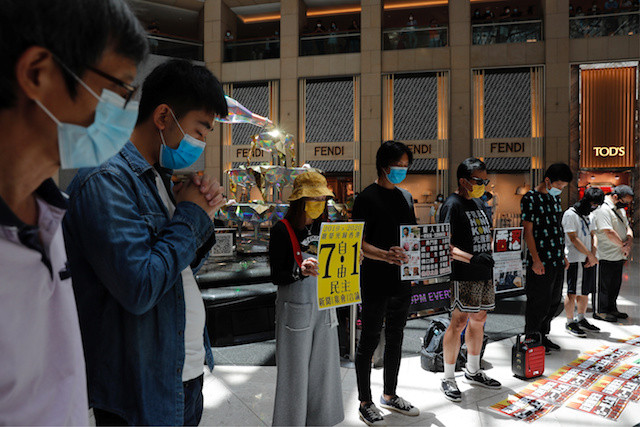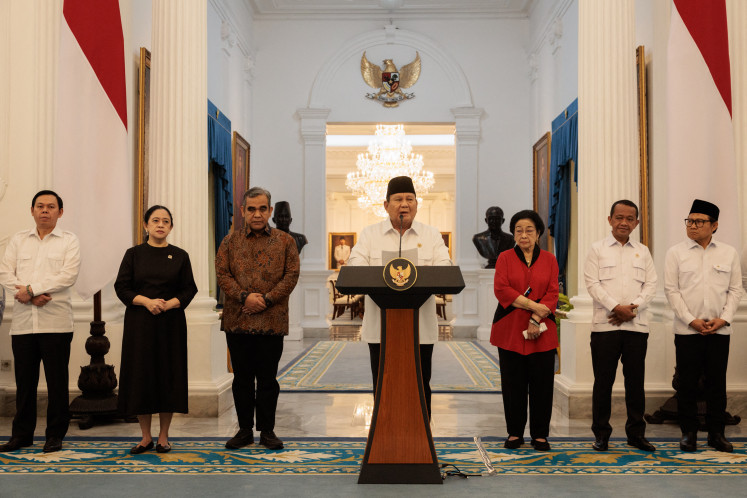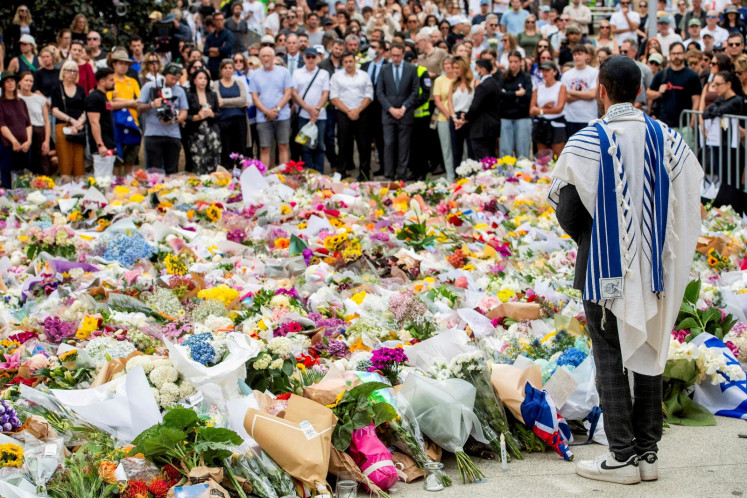Popular Reads
Top Results
Can't find what you're looking for?
View all search resultsPopular Reads
Top Results
Can't find what you're looking for?
View all search resultsNew security law: Indonesia must protect its nationals in Hong Kong
The new national security law also applies to foreign nationals in Hong Kong, and local developments have inadvertently affected Indonesians in the past.
Change text size
Gift Premium Articles
to Anyone
T
he Hong Kong Special Administrative Region (SAR) celebrated its 23rd anniversary on July 1. In the past, the commemoration involved a protest march against the government, but from this year forth, the city will not be the same, thanks to the national security law that took effect on the eve of the anniversary.
What are the implications for Indonesians living in Hong Kong and other Chinese territories?
The Law of the People's Republic of China on Safeguarding National Security in the Hong Kong Special Administrative Region came into force on June 30. Many have called it the final nail in the coffin that signals the official end to the “One Country, Two Systems” in Hong Kong. The new law addresses four major criminal activities: secession, subversion of state power, terrorist activities, and collusion with foreign or external forces.
A branch of the Central People’s Government of the People's Republic of China will be established in Hong Kong to enforce the law. It will answer directly to Beijing and falls outside of the SAR’s jurisdiction. A committee will be set up within the local government that is chaired by the Hong Kong chief executive and includes a national security adviser sent by Beijing. Specific arrangements will be made in the Hong Kong government’s Department of Justice as well as its judiciary.
While the introduction of this law is a response to the pro-democracy protests against the 2019 extradition bill, the law has wider implications that will affect not only the people of Hong Kong, but also the foreigners who live there.
The law is in many ways a departure from the city’s long-standing tradition of the common law system, and thus its execution is highly unpredictable. Instead of legislating in Hong Kong under local processes, the law was created and passed at the National People’s Congress Standing Committee in Beijing. The Hong Kong government itself did not know the text of the law until after it was passed.
The New York Times used the headline “Harsh Penalties, Vaguely Defined Crimes” to describe the new law. Pro-democracy Legislative Council member Tanya Chan proclaimed that the law could not be interpreted using any preexisting paradigm, noting that Hong Kong had now gone beyond the point of no return.
With a formidable Indonesian population in the city, the latest developments in Hong Kong will have a direct impact on their safety. According to the Indonesian consulate-general in Hong Kong, more than 174,000 Indonesians resided in Hong Kong in 2018, of whom 95 percent were domestic workers. Hong Kong is also a popular destination for university education, with over 100 Indonesian students flying in for matriculation every September.
Article 36 of the law reads: “This Law shall apply to offenses under this Law which are committed in the Hong Kong Special Administrative Region by any person. An offense shall be deemed to have been committed in the Region if an act constituting the offense or the consequence of the offense occurs in the Region.” This means that foreigners residing in Hong Kong are also held liable.
Legislative Council member Dennis Kwok, who represents the legal functional constituency, warns that this law “not only applies to everyone here in Hong Kong, it applies to everyone worldwide”.
Article 38 states that, “This Law shall apply to offences under this Law committed against the Hong Kong Special Administrative Region from outside the Region by a person who is not a permanent resident of the Region,” claiming extraterritorial jurisdiction. This means that theoretically, anybody anywhere in the world can be accused of violating the law, which essentially polices the whole world regarding such acts.
The stakes are high, as some of the offenses listed above may be subject to life imprisonment. If a case is “complex due to the involvement of a foreign country or external elements”, it could be adjudicated under the Chinese legal system at a court designated by the Supreme People’s Court.
Authorities began enforcing the law immediately on July 1, arresting 10 people for allegedly violating it.
Indonesians have been caught in a crossfire before. A Washington Post article reported that domestic workers in Hong Kong were “caught between both sides” in an information war: fliers in the Indonesian language were handed out, offering monetary incentives for them to report employers who participated in the protest. The Muslim community was attacked by a police water cannon that targeted the entrance of the city’s largest mosque.
Perhaps most significantly, Indonesian journalist Veby Mega Indah was blinded by a police-fired rubber bullet in September last year.
The Indonesian government must endeavor to protect the safety and wellbeing of its nationals abroad, including in Hong Kong.
***
The writer is a research assistant at the University of Hong Kong.










